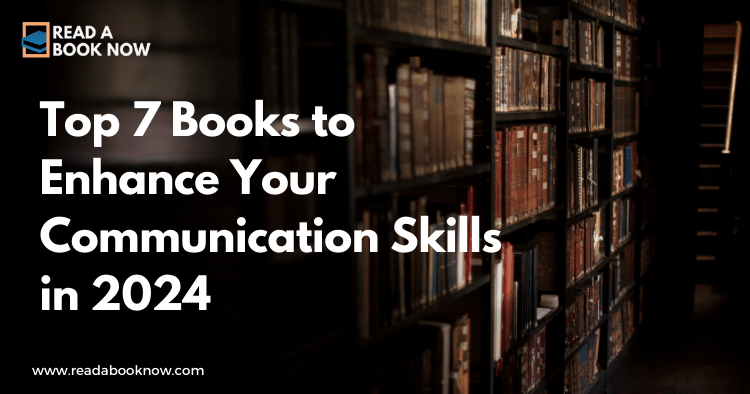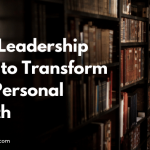Table of Contents
- Introduction
- 1. “Crucial Conversations” by Kerry Patterson, Joseph Grenny, Ron McMillan, and Al Switzler
- 2. “How to Win Friends and Influence People” by Dale Carnegie
- 3. “Never Split the Difference” by Chris Voss
- 4. “Talk Like TED” by Carmine Gallo
- 5. “The Art of Communicating” by Thich Nhat Hanh
- 6. “Dare to Lead” by Brené Brown
- 7. “Nonviolent Communication” by Marshall B. Rosenberg
- Conclusion
- FAQs
Introduction
Effective communication is an essential skill in both personal and professional settings. Whether you’re negotiating a deal, making a presentation, or simply engaging in casual conversation, the ability to convey your thoughts clearly and connect with others is paramount. To help you enhance these skills in 2024, we’ve compiled a list of the top seven books that can guide you on your journey to becoming a more effective communicator. Let’s dive in!
1. Crucial Conversations
Written by Kerry Patterson, Joseph Grenny, Ron McMillan, and Al Switzler, “Crucial Conversations” delves into the art of handling conversations when stakes are high. The authors emphasize the importance of dialogue in resolving conflicts and making effective decisions. The book provides practical tools for engaging in difficult conversations without resorting to defensiveness or aggression.
Key Takeaways:
- Recognize when a conversation is crucial.
- Create a safe environment for open dialogue.
- Master your emotions for effective communication.
“Conversations can change your life. The key is knowing how to conduct them.”
Learn more about “Crucial Conversations” here.
2. How to Win Friends and Influence People
Dale Carnegie’s timeless classic, “How to Win Friends and Influence People,” has been a go-to resource for enhancing social skills for decades. This book emphasizes the importance of empathy, active listening, and genuine interest in others to foster strong relationships.
Key Takeaways:
- The importance of smiling and remembering names.
- How to encourage others to talk about themselves.
- Ways to influence others positively without manipulation.
“People don’t care how much you know until they know how much you care.”
Explore more about this classic book here.
3. Never Split the Difference
Chris Voss, a former FBI hostage negotiator, shares his insights in “Never Split the Difference.” This book teaches readers negotiation tactics derived from high-stakes situations, focusing on emotional intelligence and understanding human psychology.
Key Takeaways:
- Use tactical empathy to build rapport.
- Differentiation between “no” and “yes” to understand real agreement.
- Employ the “mirroring” technique to encourage collaboration.
“In negotiation, you don’t get what you deserve; you get what you negotiate.”
Discover more insights from Chris Voss here.
4. Talk Like TED
Carmine Gallo’s “Talk Like TED” is a fantastic resource for anyone looking to improve their public speaking skills. By analyzing some of the most successful TED Talks, Gallo breaks down the elements that make a presentation engaging and memorable.
Key Takeaways:
- The power of storytelling in presentations.
- How to deliver a message with passion and authenticity.
- The importance of practicing and refining your delivery.
“Great communicators are not born; they are made through practice and preparation.”
Learn more about effective public speaking techniques here.
5. The Art of Communicating
Thich Nhat Hanh’s “The Art of Communicating” focuses on mindful communication. The book teaches readers how to engage in conversations with compassion and awareness, which is essential for building meaningful connections.
Key Takeaways:
- The role of mindfulness in effective communication.
- Techniques for active listening and responding with empathy.
- The importance of self-awareness in conversations.
“To communicate effectively, we must first listen with compassion.”
Explore more about mindfulness and communication here.
6. Dare to Lead
Brené Brown’s “Dare to Lead” emphasizes the importance of vulnerability and courage in leadership and communication. This book is particularly valuable for those looking to create an open and trusting environment in their personal and professional lives.
Key Takeaways:
- Embracing vulnerability as a strength in communication.
- Building trust through open dialogue and transparency.
- Encouraging feedback and fostering a culture of communication.
“Vulnerability is the birthplace of innovation, creativity, and change.”
Learn more about Brené Brown’s work here.
7. Nonviolent Communication
Marshall B. Rosenberg’s “Nonviolent Communication” offers a unique perspective on improving communication. This book teaches readers how to express their needs and feelings without blame or judgment, fostering a more compassionate dialogue.
Key Takeaways:
- The four components of Nonviolent Communication (NVC).
- Techniques for expressing needs and feelings constructively.
- Strategies to resolve conflicts peacefully and empathetically.
“The greatest gift we can give to others is our presence.”
Discover more about Nonviolent Communication here.
Conclusion
Improving your communication skills can significantly enhance your personal and professional relationships. The books listed above provide valuable insights and practical tools to help you become a more effective communicator in 2024. Whether you’re looking to negotiate better, present with confidence, or connect with others on a deeper level, these resources will guide you on your journey.
FAQs
Q: How can reading these books improve my communication skills?
A: Reading these books will provide you with various techniques, strategies, and insights that can help you understand yourself and others better, enhancing your ability to communicate effectively.
“Knowledge is power, but applied knowledge is empowerment.”
Q: Can I apply these skills in both personal and professional settings?
A: Absolutely! The skills learned from these books are applicable in various contexts, including personal relationships, workplace interactions, and public speaking.
Q: How often should I practice my communication skills?
A: Regular practice is key to improvement. Try to incorporate the techniques you learn into daily conversations and reflect on your interactions to identify areas for growth.
Also Look For
If you’re interested in classic literature that can also enhance your understanding of communication and human relationships, consider exploring some of the timeless works discussed in our Top 10 Timeless British Classics Everyone Should Read and 10 Must-Read Feminist Classics That Changed Literature. These works not only provide rich narratives but also offer profound insights into human behavior and interactions.




